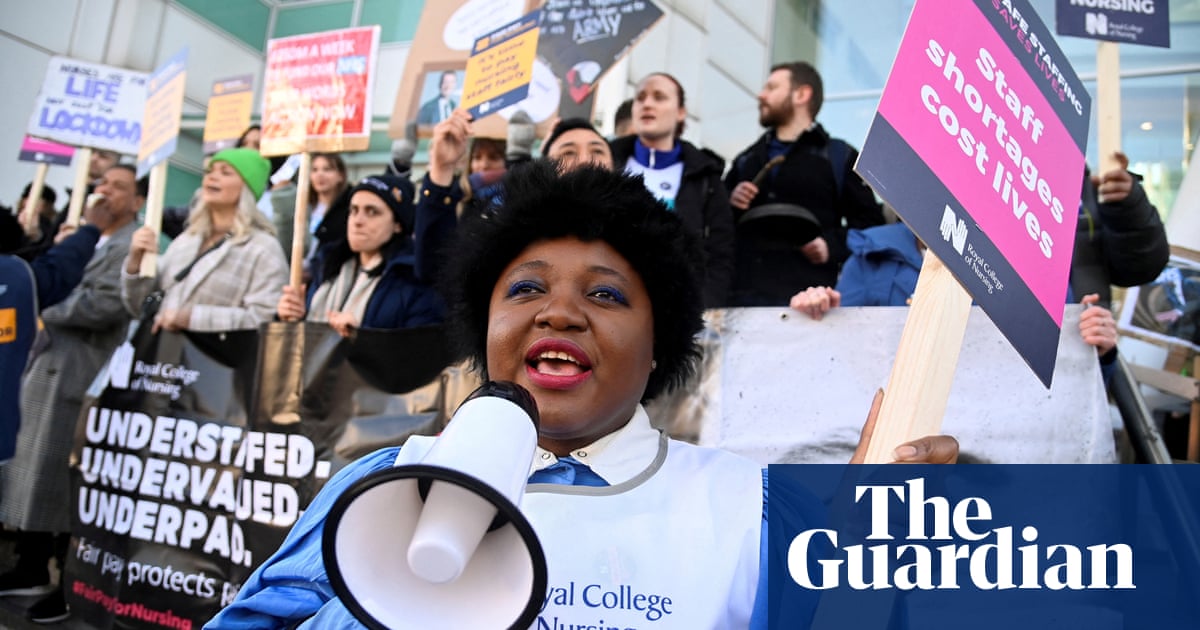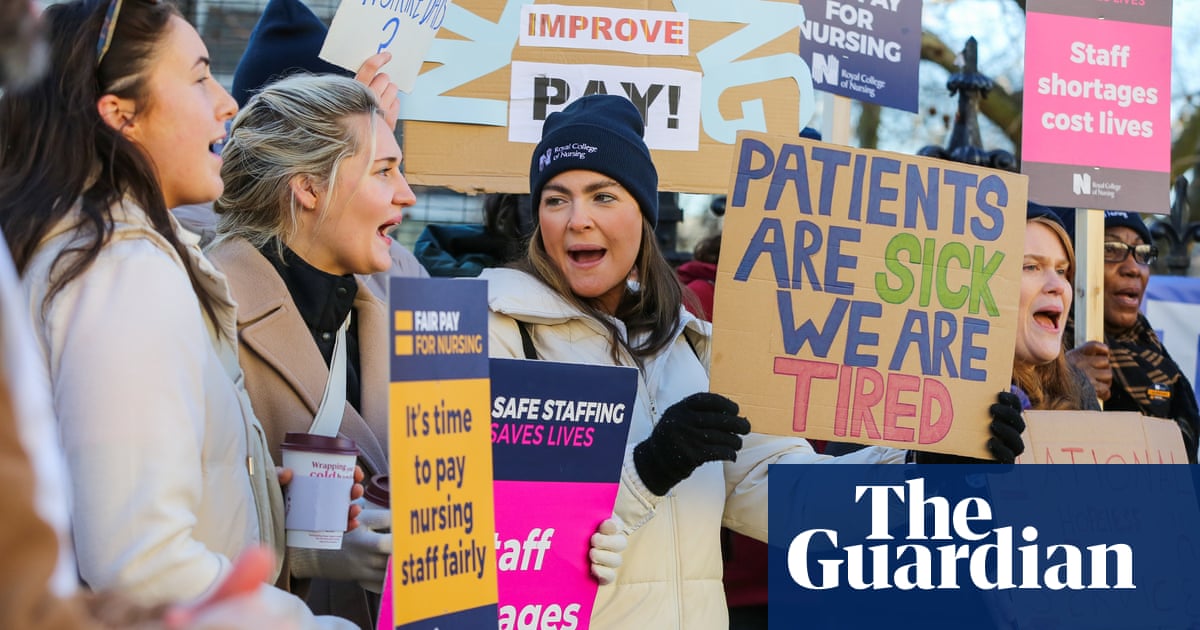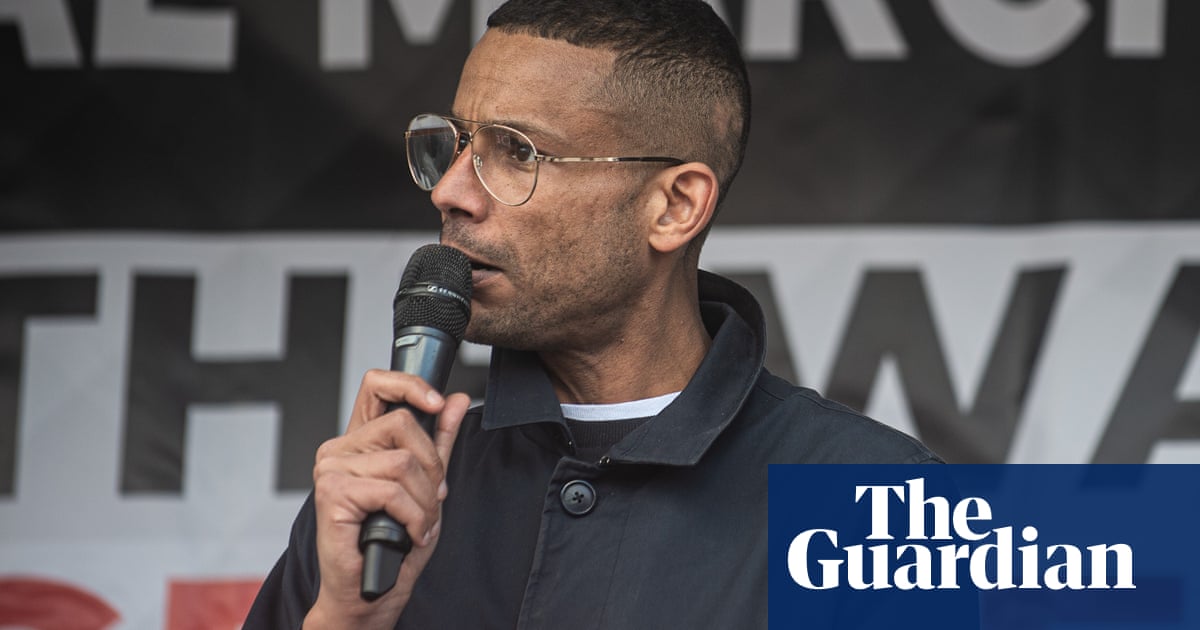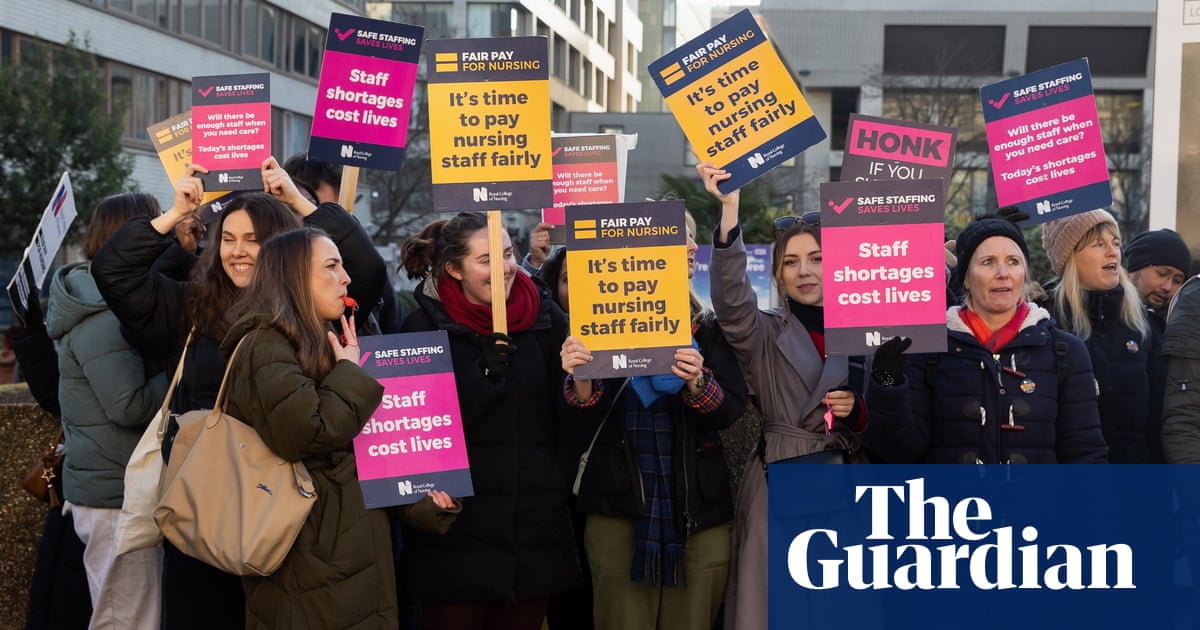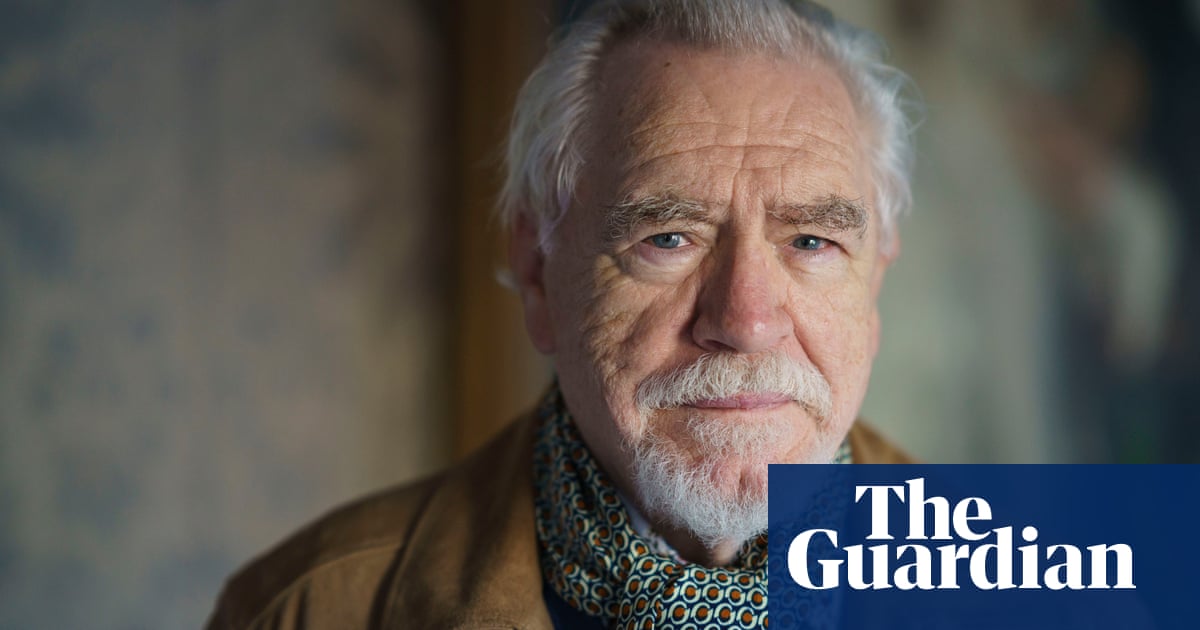
Rishi Sunak has been warned he faces the prospect of more strike action in the new year unless the government “corrects” a decision to hand nurses one of the lowest pay rises in the public sector.
Nursing leaders said it was an “absolute disgrace” that their members had not been prioritised in the last year, adding that they would consider reballoting members over strikes if necessary once they had guided the NHS through winter. The warning follows a pay deal for NHS consultants that came on top of rise that was already larger than that offered to nurses.
Prof Nicola Ranger, the chief nurse at the Royal College of Nursing (RCN), told the Observer it was “naive of the government to think that this dispute is over”, after a year in which nurses held a series of walkouts in protest at pay and conditions. She said nurses had rejected the 5% pay offer and lump sum that was eventually forced on them. Further strikes were avoided only after the unionnarrowly missed a legal threshold for strike action, which requires 50% of members to cast a vote.
“We work incredibly closely with our consulting colleagues, so our issue isn’t with them,” she said. “It is with the government. When we were negotiating on pay for nurses, we absolutely knew the offer wasn’t enough. But we were told categorically, because of the cost of living crisis, that was as good as we were going to get. Understandably, many of our nurses were disappointed with that, which is why they did reject the offer.
“They will be very, very frustrated. We’ve got a huge problem with recruitment and retention. This has to get solved if we want to sort healthcare out in this country. Pay and conditions are a major part of that. If I was the government, I would use this opportunity to properly correct that. The government doesn’t listen to nurses at their peril.”
Last week, ministers heralded the fact that more than 50,000 additional nurses were working in the NHS in England compared with 2019, meeting a manifesto commitment. However, official figures also showed more than 42,000 registered nurse vacancies.
Ranger warned that talk of a clampdown on overseas workers and their rights would also hit recruitment. She said the RCN was already preparing for next year’s pay talks. “We are very hopeful that the government takes this seriously, because they directly intervened with the medical staff. So is this over? No.
“There’s real frustration now. No one wants to make it more difficult for the patients. But we’ve got a government that is just not valuing our profession. So, of course, we’ve always got the option of reballoting. We would like to find a way to get this resolved. And that’s what I would do if I was the government.”
The return of industrial unrest in the NHS would come as a huge blow for Sunak in an election year. Hospitals have already been told to switch efforts from dealing with the treatment backlog Sunak has pledged to prioritise, after they were told to ensure they did not breach their budgets and concentrate on emergency departments this winter. NHS experts warn that finances are in constant peril. “In 2018, Theresa May committed to average annual increases for the NHS of 3.4% a year,” said Sally Gainsbury, a Nuffield Trust senior fellow. “That deal ends this financial year, and the autumn statement set the NHS a budget starting in April that is at least £9bn less than it would be if it had kept going. That’s a figure that is frankly impossible without imagining widespread cuts to care.
“I fear we are entering a period where politicians on all sides are just not willing to be honest about the level of funding a modern health service needs. They don’t want to admit the implications for taxes or other budgets if the NHS was fully funded for all the demands we put on it.”
A Department of Health and Social Care spokesperson said: “We hugely value the hard work of NHS nurses and that’s why we provided a 5% pay rise. We also provided two significant non-consolidated awards, which for nurses at the top of band five was over £2,000, equivalent to an extra 6.1% of their basic pay. This deal was accepted by the NHS staff council and we continue to work collaboratively, including with the RCN, to deliver a series of agreed reforms but we will not be reopening negotiations on pay. The offer for consultants includes significant reform for a pay scale that has not been modified since 2003.”




